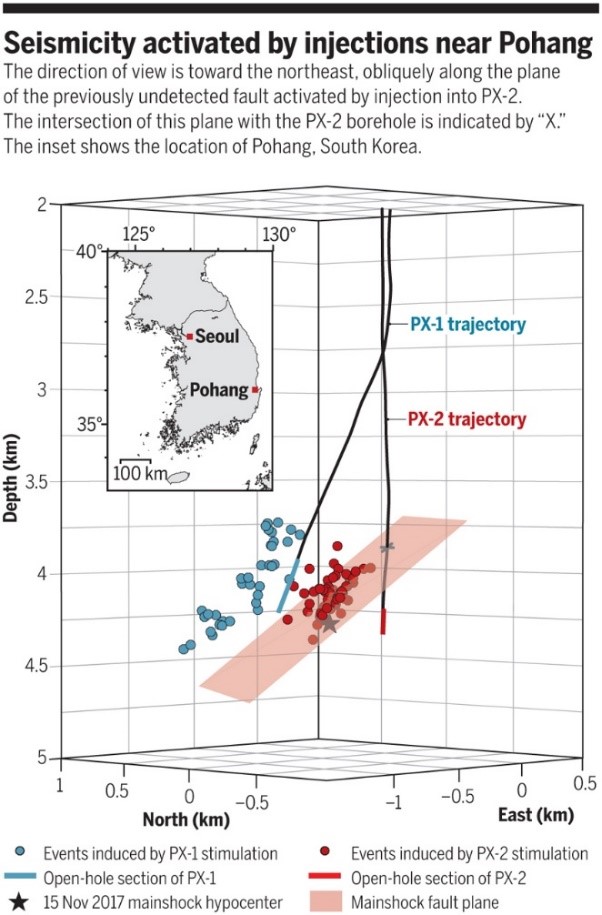Unintended consequences: anthropogenic triggering of a large and damaging earthquake during development of an enhanced geothermal system (Pohang, South Korea)

Speaker: Professor John Townend
SGEES, Victoria University of Wellington
The Mw 5.5 Pohang earthquake occurred on 15 November 2017 close to two 4 km-deep boreholes drilled as part of South Korea’s first enhanced geothemal system (EGS) project and within 5 km of the city of Pohang. The experimental EGS project was intended to demonstrate the feasibilty of geothermal energy production in southeastern South Korea as the country works to reduce its reliance on hydrocarbons and nuclear energy. The earthquake caused dozens of hospitalizations, one fatality, the displacement of 1700 people into emergency housing, and total economic impact of ~US$300M. It’s location close to the EGS site led to immediate concern that EGS activities had played some role in the earthquake’s nucleation. The key finding of the government inquiry into the earthquake’s causes was that high-pressure injection of water into one of the two boreholes had unequivocally induced seismicity and triggered the damaging earthquake. In this talk, I will review the geological and geophysical observations that underpinned the inquiry’s findings, focusing, in particular, on the sequence of events that occurred during each phase of injections and the lessons this earthquake provides for managing risks associated with induced seismicity.
This talk is intended for a general audience. It will contain introductory material on enhanced geothermal systems, seismology and faulting, suitable for non-specialists. Details of the government inquiry’s findings and their ramifications can be found at https://doi.org/2010.1785/0220190102 (technical basis) and https://doi.org/10.1126/science.aax1878 (policy implications). The full report of the inquiry is available at https://doi.org/10.22719/KETEP-20183010111860.
